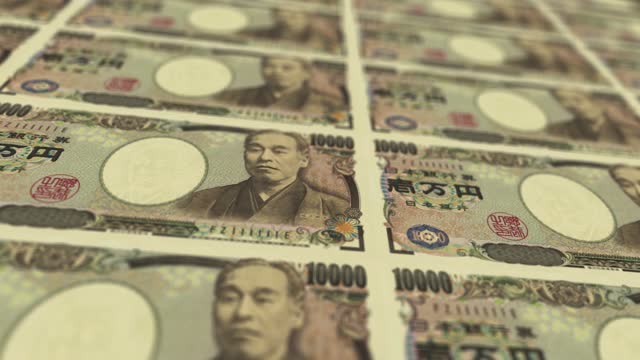Tokyo: In Monday morning trading in Asia, the Japanese yen depreciated to 160 against the US dollar, marking a significant milestone in currency markets. According to FactSet data, the yen briefly touched 160.03 against the dollar, reaching its weakest level since April 1990 when it touched 160.15.
The yen’s decline comes amidst continued strength in the greenback, fueled by shifting expectations regarding Federal Reserve rate cuts. Concerns intensified after the Fed’s preferred inflation gauge surpassed expectations on Friday, highlighting the challenges faced by the US central bank in addressing persistent inflationary pressures.
Japanese Yen per US Dollar
1st of January, 2021: 103
Now: 160
Since the Bank of Japan terminated its negative interest rate regime in March, the yen has consistently traded around 150 or weaker against the dollar. Despite the central bank’s decision to maintain rates and slightly raise its inflation expectations for fiscal 2024, uncertainties persist regarding the yen’s trajectory.
During a press conference on Friday, BOJ Governor Kazuo Ueda emphasized that exchange rate volatility would only influence monetary policy if it significantly impacted the economy. While Japanese authorities have cautioned against “excessive” movements in the yen, no official announcements regarding currency bolstering measures have been made.
Market observers speculate about potential intervention by Japanese authorities, particularly as the yen breached the 155 level last week. However, experts note that officials seem more concerned about currency volatility rather than specific exchange rate thresholds.
Vincent Chung, associate portfolio manager at T. Rowe Price, suggests that the current pace of yen depreciation might result in a less intense intervention response compared to previous instances. Options pricing indicates that markets anticipate intervention after the BOJ’s May meeting.
Despite speculation, there is no consensus on a definitive intervention trigger. Jesper Koll, expert director at Monex Group, suggests that Japanese officials may take action if the yen experiences a significant and sustained depreciation, possibly indicating a speculative attack.
However, some experts argue against intervention, citing potential adverse effects on Japan’s national assets and the possibility of further yen weakening. T. Rowe Price’s Chung highlights the positive impacts of yen weakness on stock performance and inflation targeting efforts.
Japanese markets remained closed on Monday for a public holiday, providing a temporary respite amidst ongoing currency volatility and monetary policy speculation.



